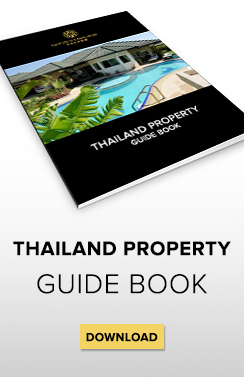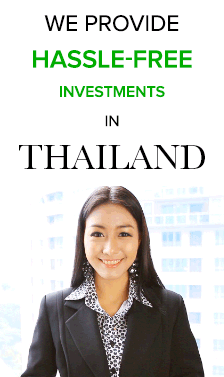BRISBANE INSIDE-OUT IN 30 MINUTES
The popular tourist destination of Brisbane, Australia has recently seen further population growth, Chinese migration, and infrastructure developments, making it prime for investment. Golden Emperor launched a prime development in the city, Alto Apartments, to Hong Kong investors. Over 200 investors attended the Hong Kong launch that weekend, and the project was completely sold out.

Above: Golden Emperor provided a presentation on Brisbane property investments
Chinese spend more on Queensland property than other foreign buyers
Chinese buyers are spending more money on Queensland property than any other foreign investors – and the splurge shows no signs of abating.
A Queensland Foreign Ownership of Land Register report shows the Chinese spent $872 million on property in the sunshine state during the last financial year; an increase of 88 per cent over the previous year.
Singaporeans spent about half that amount and the British – Queensland’s largest foreign property holders – spent only $119 million.
Most money was spent in Brisbane, followed by the Gold Coast and Ipswich.
While most of the money was poured into land and development sites, most of the transactions were for apartments.
Chinese property website Juwai.com spokesman Dave Platter said the demand for Queensland property was driven by tourism, education and long-term local investment.
“Queensland – and, in particular, the Gold Coast – has been very good at marketing itself,” he said.
The Gold Coast, for example, is attractive as a tourist destination because it’s got a whole integrated chain of services: Chinese language-speaking operators, Chinese restaurants, the casino. It’s really set up for Chinese tourists and they feel very comfortable in the high-rise environment.
“Every time the holiday season ends, there’s a surge in property investment from those who have gone to Queensland on a holiday, loved it and want to own it.”
However, Mr Platter said as the Chinese became more comfortable with investing overseas, they would inevitably look elsewhere.
“Queensland needs to continue its aggressive marketing campaign as there are more countries pitching themselves to the Chinese every day,” he said. “As long as the Chinese are coming to Australia to study and holiday and can see there are long-term plans for safe economic investment, they will continue to buy property in Queensland.”
Despite the recent splurge, the Chinese still own less land in Queensland than other nations.
Investors from Switzerland, Germany and the Netherlands own more land in the state.
The state government report also revealed more than $78 million was invested in Ipswich in 2014-15.
This month, Thai hospitality giant Dusit International committed to building a $550 million golf and spa resort in Brookwater on Ipswich’s outskirts.
Ipswich mayor Paul Pisasale said a lot of hard work had gone into making his city attractive to foreign investors.
“It’s about creating relationships with longevity. I never turn down an offer to meet up with people. I remember their birthdays. We want foreign investors to know they have our friendship,” Mr Pisasale said.
He said Taiwanese, Chinese and Japanese investors were heavily involved in the new Ripley Valley development outside Ipswich which would eventually house a community of 128,000 people.
They found the ability to buy freehold titles off the plan attractive, he said.
Source: Commerical Real Estate
Brisbane property market to boom
A new report from QBE LMI forecasts Brisbane to achieve the highest growth rate of all capital cities in the three years to June 2018.
QBE’s Australian Housing Outlook 2015-2018 reveals Brisbane’s continuing affordability will result in the median house growing from $511,300 as at June 2015 to $575,00 in June 2018 – a 12% jump.
Sydney’s median house price is forecast to increase from $1.034 million at June 2015 to $1.11m by mid-2016 before decreasing to $1.055m by June 2018.
In Melbourne, the report forecasts a slower rate of growth from the past two years, with the median house price set to increase by 5% to $770,000 by June 2016.
And in Perth, both the housing and unit markets are estimated to weaken in light of rising stock surplus and the slowing state economy, with the median house price to drop by 10% in the three years to June 2018.
“BIS Shrapnel’s research predicts there will only be a mild correction to median house prices during the forecast period of 2015-2018 in Perth and Darwin, with compound growth in median house prices in all other capital cities: Sydney, Melbourne, Adelaide, Hobart and Brisbane. A number of regional cities are forecast to outperform the capital city in their state.”
And looking at the next 12 months, the report predicts demand in some markets to ease, with the exception of Sydney (7% increase), Melbourne (5% increase) and Brisbane (5% increase).
“Perth and Darwin will feel the impact of a softening economy, which will further reduce demand, resulting in a correction in median house prices. Darwin, Perth and Adelaide are all expected to see shallow growth. Hobart and Canberra are forecast to experience some stability after prior weakness, with interstate migration flows expected to improve.”
In the current residential cycle, the report highlights Sydney and Melbourne are the current standout performers thanks to the investor market, which represent half of the national market.
Source: GHK Real Estate
Many property investors are looking to Brisbane as Sydney – Australia’s most expensive capital city housing market – loses its lustre.

Above:Investors switching their focus from Sydney to Brisbane.
Tighter lending standards have cut many would-be investors out of the property market and some are switching their focus from Sydney to Brisbane, a major buyers’ agency says.
Cohen Handler CEO Ben Handler says some investors are finding it tougher to get a loan after the regulator’s moves to slow growth in lending to investors, and Brisbane is now looking more attractive.
Mr Handler said some investors could not get loans approved or now required a bigger deposit.
“A lot of the investors have been cut out of the market because they don’t want to put in that hefty deposit,” Mr Handler told AAP.
The buyers’ agency is purchasing a lot of property in Brisbane and south east Queensland for investors because Sydney is too expensive.
“I think the yields here are not good because you’re paying so much to buy now,” he said from Sydney.
“People are like `hey I’m not going to get much capital growth in Sydney because I’m paying at the top of the market and my rental return is not that great’, so the next best thing we’re seeing is Brisbane.”
He said there had been a big shift in the market in Sydney’s west, in areas such as Harris Park near Parramatta and St Marys and Penrith.
“A lot of the investors can’t get in there so a lot of stuff is passing in out west,” Mr Handler said.
Many lenders have hiked interest rates for investors and made it harder for them to get loans, while cutting rates for owner occupiers, in response to the Australian Prudential Regulation Authority’s crackdown.
Bank of Queensland chief executive Jon Sutton believes the company could benefit as people head north in search of more bang for their housing buck, saying Queensland house prices are still affordable.
“In time, better housing affordability should encourage net migration to Queensland, further boosting the state economy,” Mr Sutton said as the bank reported a record $318 million annual net profit.
EAST COAST CAPITAL CITY MEDIAN HOUSE PRICES:
* Brisbane $460,000
* Sydney $785,000
* Melbourne $580,000
Source: SBS
Global Launch of Aria – a KL Luxury Residence by Hap Seng Land
Kuala Lumpur has always been a popular destination for foreign investments. With the recent currency depreciation, we believe that it is an opportune moment for investors to purchase KL properties at a lower price. This is a good opportunity for investors as the phenomenon of the excessively cheap Ringgit is likely to be short-lived. This temporary dip in property prices is similar to what happened in the Hong Kong property market during the SARS outbreak.
Golden Emperor and Hap Seng Land launched a prime development, ARIA, located in the sophisticated and premium enclave of KL’s Embassy Row. Over 400 investors attended the Hong Kong launch that weekend.

Above: The building model of ARIA, a luxury residence by Hap Seng Land

Above: Over 400 investors attended the weekend launch of ARIA
 Above: Terence Chan, Director of Golden Emperor (a subsidiary of Asia Bankers Club), provided a presentation on the KL property market.
Above: Terence Chan, Director of Golden Emperor (a subsidiary of Asia Bankers Club), provided a presentation on the KL property market.














